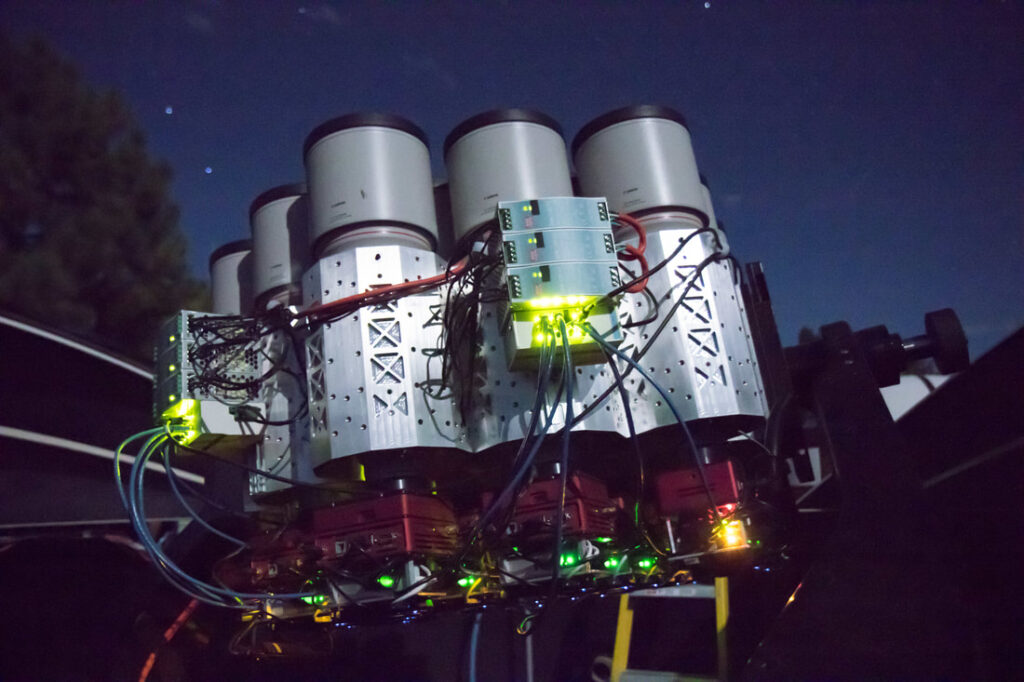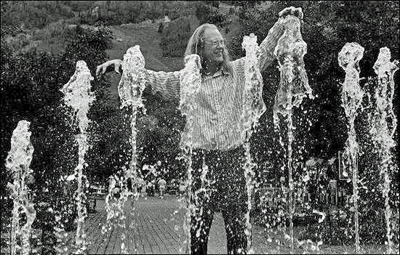

Public Lecture
Crazy Telescopes, Ghostly Galaxies, and the Invisible Universe
Roberto Abraham
University of Toronto
Wed, Apr 3, 5:30–6:30pm
Bigger telescopes are usually better telescopes… but not always. Sometimes crazier telescopes are better telescopes. In this talk I will describe the nearly unexplored universe of ghostly, nearly undetectable phenomena in the heavens. I will focus on why finding these ghostly objects is important, and why it has also been so devilishly difficult to find them using “normal” telescopes. We have probably been missing out seeing a vast range of exotic objects, like low-surface brightness dwarf galaxies, supernova light echoes, galactic halos, and planetary dust rings. These objects are nearly undetectable with conventional telescopes, but their properties may hold the keys to understanding a host of fundamental phenomena, including the nature of dark matter and the mechanisms by which galaxies form and evolve.
These things are hard to study, but all is not lost! Bizarre new telescopes, made possible by technological advances driven by mobile phone camera sensors and processors, and ubiquitous access to fast networks, are coming to the rescue. The Dragonfly Telephoto Array (a.k.a. Dragonfly) is an example of this new class of telescope. Dragonfly is comprised of 168 off-the-shelf high-end telephoto lenses utilizing novel nanostructure-based optical coatings. I will showcase some early results from Dragonfly, and describe how this array is evolving to tackle the ultimate challenge in this subject: directly imaging the “Cosmic Web”. This is the largest collapsed structure in the Universe, and the repository of most of its matter. We know this web exits, but nobody knows what it really looks like, or how it funnels the gas created by the Big Bang into pockets of dark matter to drive the formation of galaxies. We are now building a telescope that will let us take pictures of the Cosmic Web, and hope to find these things out.

About Roberto Abraham
Roberto Abraham is a Professor of Astronomy and Chair of the David A. Dunlap Department of Astronomy and Astrophysics at the University of Toronto. He is a Fellow of the Royal Society of Canada and served as President of the Canadian Astronomical Society.
Prof. Abraham was born in Manila, grew up in San Francisco and Vancouver, and obtained his BSc from University of British Columbia before moving to the UK to obtain a doctorate from Oxford. He did postdoctoral work at the National Research Council of Canada's Herzberg Institute and at Cambridge University. Prof. Abraham's work is focused on observations of galaxy formation and evolution and on the development of innovative scientific instruments, such as the Dragonfly Telephoto Array. He has won numerous awards for his work, including the Jackson-Gwilt Medal awarded by the Royal Astronomical Society, the Canadian Astronomical Society's P. G. Martin Award, an NSERC Steacie Memorial Fellowship, a Canada Council for the Arts Killam Research Fellowship, a Premier's Research Excellence Award, and the University of Toronto Outstanding Teaching Award. He has served on the Board of Directors of major international observatories, advised NASA and scientific funding agencies in various capacities and served as Canada's representative on the James Webb Space Telescope Advisory Committee.
In addition to being a professional astronomer, Prof. Abraham has never given up his love of backyard astronomy, which set him on the road to being a scientist at age 12. His secret life as an amateur astronomer has led him to place tremendous value on outreach, and on the role of astronomy in stimulating the growth of scientific literacy. Astronomy is the gateway science for encouraging young people to embark on a host of STEM careers. This enthusiasm for outreach has led to him serve as the Honorary President of the Toronto Centre of the Royal Astronomical Society of Canada for many years. (Here is a Pro Tip: if you love astronomy and you live in Canada, you should definitely be a member of the Royal Astronomical Society of Canada.)
Nick and Maggie DeWolf Public Lecture Series
The Nick and Maggie DeWolf Foundation has sponsored our winter public lecture series since their inception in 1985. The Nick and Maggie DeWolf Foundation is a nonprofit organization based in Aspen, Colorado. Its core tenet is to provide support to groups and organizations interested in improving the quality of life and education in the world. During the winter, Aspen Center for Physics hosts week-long conferences, and during each conference one of the conference participants is asked to give a public physics talk. You can watch past talks on our YouTube channel here.
